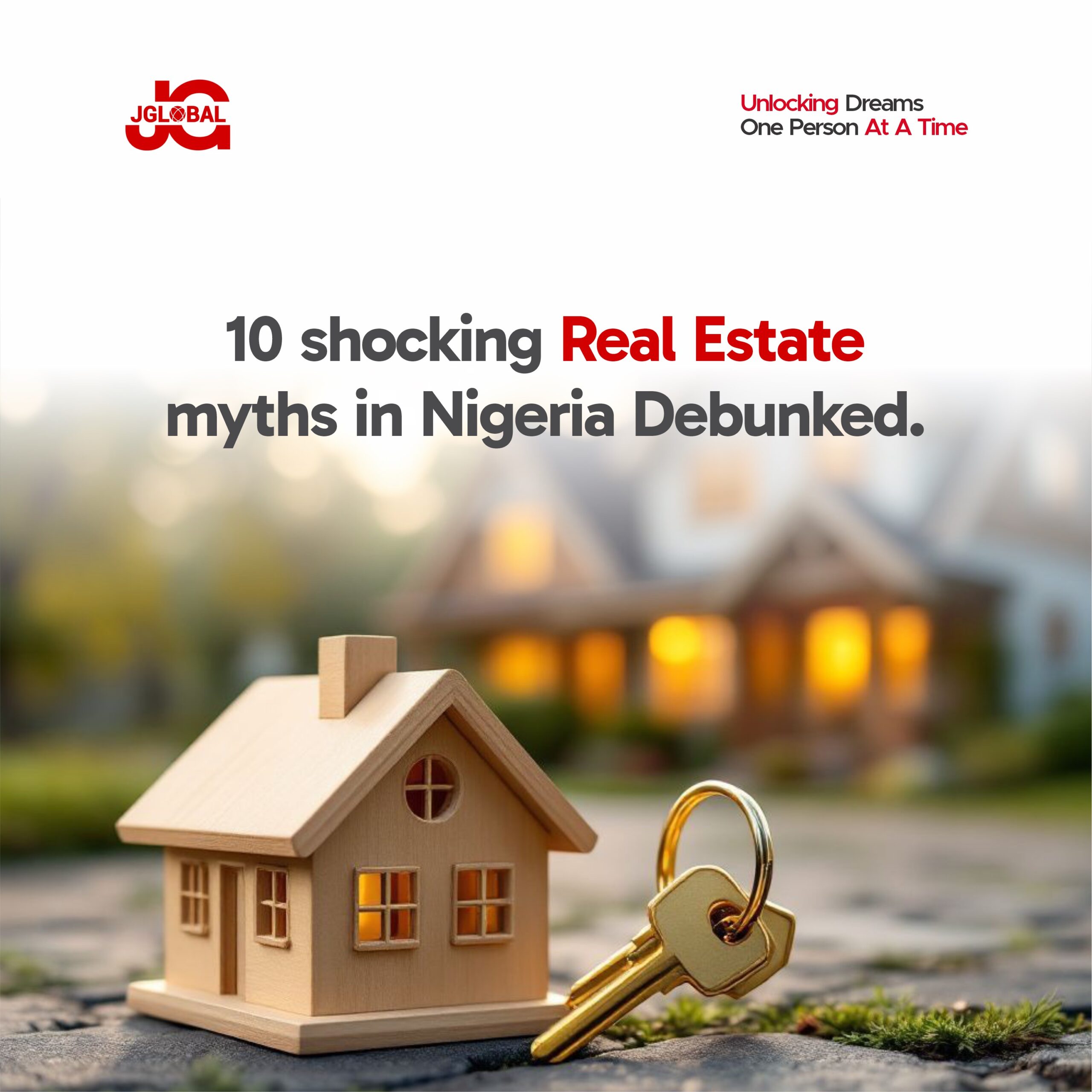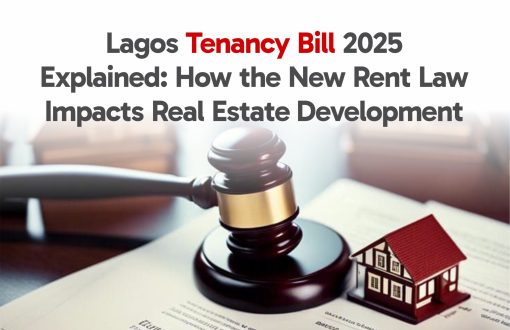10 Shocking Real Estate Myths in Nigeria Debunked

INTRODUCTION
The Nigerian Real Estate sector has become more popular and attractive to most people in recent times. Everywhere you go you see advertisements for one real estate company or the other, you hear realtors fervently talking about how important it is to buy land now and how it’s the greatest and safest investment an individual can make, and hear stories from proud landowner about the property they just purchased and how it’s value has already gone up as soon as they bought it. The real estate market has never been more attractive, drawing various individuals who want to be landlords and people who wouldn’t have dreamed of buying landed property or owning land.
But,
There are many misconceptions, false ideas and myths to watch out for when it comes to the real estate market in Nigeria. Some of which will surprise you because you have believed them all your life.
Here are ten shocking real estate myths that land owners and non-land owners alike still think are true.
- Real Estate is a Quick-Rich Scheme.
A lot of people think that once they buy a plot, the price will double in a few months. That’s not how real estate works. In most parts of Nigeria, land value grows gradually. Some places can even stay the same for the first 2–3 years before you see any serious growth.
If you’re buying land, have a long-term mindset. Think in years, not months. Real wealth in real estate comes from patience, proper research, and picking the right location not unrealistic promises.
- All Real Estate Agents Are Fraudsters.
While scams exist (e.g., “Omo-Onile” land grabbers), many licensed agents and firms operate legally. Due diligence is key. Always verify property documents before buying and never hand over money to any realtor who claims that they can circumvent the standard land buying process and get you a discounted price on land.
- Buying Land is Always Better Than Buying a House.
Some think land is a safer investment, but building costs, government seizures (e.g., Lagos’ demolition exercises), and lack of infrastructure can make developed property a smarter buy. This is especially true now with the fluctuating price of building materials. According to the National Bureau of Statistics, Building costs in Nigeria rose by 65% between 2020-2024 due to inflation in cement and steel prices.
- You Need Millions to Start Investing in Real Estate.
Many assume real estate is only for the rich, but options like REITs (Real Estate Investment Trusts), joint ventures, and installment payment plans make it accessible with small capital. It is necessary to first verify the legitimacy of any joint venture or installment payment plans for land before you invest your hard earned money. You can visit the website of any trusted real estate company to know more.
- All Government-Approved Estates Are Safe.
Even estates with government approval can face issues like revoked land titles (e.g., cases in Abuja and Lagos). Always verify with the Bureau of Lands and Ministry of Housing. This is something you shouldn’t neglect to do as a serious potential land owner in Nigeria.
- Location Doesn’t Matter.
In real estate, location is paramount. A property’s value is heavily influenced by its proximity to essential amenities like schools, hospitals, transportation links, and shopping centers. Consider this before buying land in relatively isolated areas.
- You Don’t Need a Real Estate Professional to Buy Property.
Many skip these essential fees like surveyors, lawyers and Realtors, only to lose land to fraudulent sellers, family disputes, or defective titles. A real estate professional helps verify C of O, Gazette, and Survey Plans. The money you spend here will be a lot less than the amount you’ll eventually have to cough up trying to dispute the ownership of the land.
- Foreign Real Estate is Always Better Than Nigerian Properties.
While foreign markets may seem stable, currency risks, taxes, visa restrictions, and management challenges make local investments (with proper research) equally profitable. The common mentality that whatever is ‘ oyibo ‘ isn’t always true, especially when it comes to real estate in Nigeria.
- All Properties in Highbrow Areas Are Valuable.
Just because a property is in Ikoyi, Maitama, or GRA doesn’t mean it’s a goldmine. Yes, these places are known for luxury and prestige, but that doesn’t guarantee high returns or long-term value. Factors like poor road access, flooding, insecurity, or even oversupply in the area can reduce demand drastically.
Location is important but don’t be deceived by the name alone. You still need to do your due diligence. Check the exact street, the neighborhood condition, and how well the property is managed. Highbrow doesn’t always mean high value.
- Renting is Wasting Money; Owning is Always Better.
Buying a house isn’t always the smartest move for everyone. In fact, renting can be the better option, especially if you’re still figuring things out.
According to a Jobberman report, young professionals in Nigeria change jobs every 2 to 3 years and that kind of lifestyle needs flexibility. Renting gives you the freedom to move easily, without being tied down.
Plus, owning a house comes with extra costs, repairs, maintenance, and all the landlord stress. Some people simply aren’t ready for that. So no, renting isn’t wasting money. Sometimes, it’s just the smarter choice for where you are in life.
Read More: Top Real Estate Investment Threats
How to Avoid these Real Estate Myths
These myths thrive because of aggressive marketing and selective success stories. Developers often highlight soaring returns while omitting delays or demolitions. Buyers end up chasing social narratives rather than vetting facts.
Here’s how to protect yourself:
- Verify every document: C of O, Gazette, governor’s consent. Trust is good; documentation is better.
- Check price trends: Inflation remains high, building materials are up over 100% in less than two years.
- Understand your goals: Are you aiming for income, appreciation, or personal use? Choose the model land, house, rental that fits your strategy.
- Seek professional advice: Lawyers, surveyors, and certified agents help you avoid common pitfalls.
- Plan for liquidity: If you move often, renting could be smarter for your situation.
Conclusion
Many Nigerian real estate myths stem from misinformation, deliberate and otherwise.
Always verify land titles, consult professionals, and research market trends before investing or buying that land you’ve had your eye on.
The right knowledge can save you from costly mistakes.



